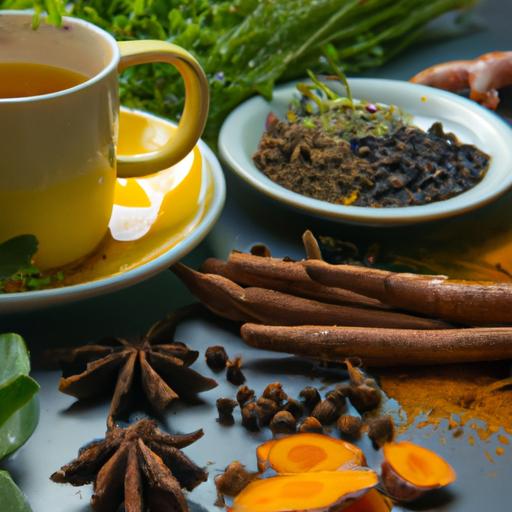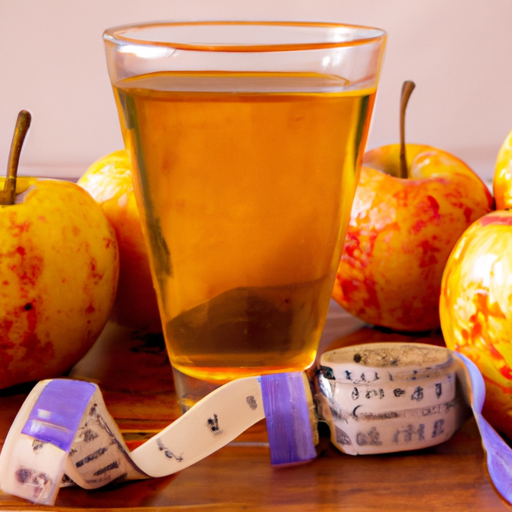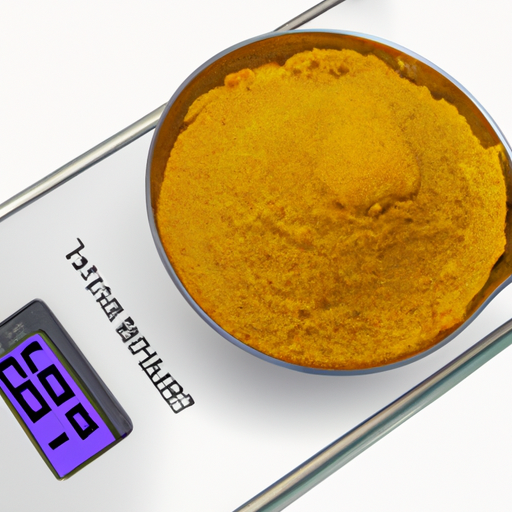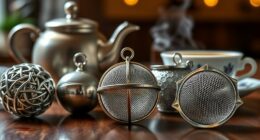I frequently ponder the frequency at which I can safely consume ginger and turmeric tea, given my love for its taste and health benefits. These potent herbs have a history of being utilized in traditional medicine for their anti-inflammatory and antioxidant properties, and their popularity has steadily increased in recent years.
But with all the information out there, it can be hard to determine just how much is too much. In this article, I’ll explore the recommended frequency of drinking ginger and turmeric tea, as well as some factors to consider when incorporating it into your diet.
Before diving into the specifics, it’s important to understand the potential benefits of ginger and turmeric tea. Ginger has been shown to help with digestion, reduce inflammation, and even relieve nausea and vomiting. Turmeric, on the other hand, contains a compound called curcumin, which has been linked to improved brain function and a reduced risk of chronic diseases such as cancer and heart disease.
Together, these two herbs pack a powerful punch, making ginger and turmeric tea a popular choice for health-conscious individuals looking to boost their overall wellness.
Key Takeaways
- Drinking 1-2 cups of ginger and turmeric tea per day can provide anti-inflammatory properties, aid in digestion, and boost the immune system.
- Overconsumption of ginger and turmeric tea can lead to negative side effects, so moderation is key.
- The daily intake limit for ginger is no more than 3-4 grams and for turmeric is 1-2 grams per day.
- It’s important to talk to a healthcare provider if you have concerns about potential risks associated with consuming ginger and turmeric.
Understanding the Benefits of Ginger and Turmeric Tea
Ginger and turmeric tea is a powerful anti-inflammatory drink that can offer a multitude of health benefits, making it a great addition to your daily routine. Both ginger and turmeric are known for their anti-inflammatory properties, which can help reduce pain and inflammation in the body.
In addition, ginger is known for its ability to help with digestion, while turmeric is known for its antioxidant properties that can help protect the body against damage from free radicals.
To make ginger and turmeric tea, you can use either fresh or dried ginger and turmeric. Simply add the sliced or grated ginger and turmeric to a pot of boiling water and let it simmer for 10-15 minutes. You can also add other ingredients like honey or lemon to taste.
Overall, there are many health benefits to drinking ginger and turmeric tea, and it is a simple and easy way to incorporate these powerful ingredients into your daily routine.
When it comes to recommended frequency of drinking ginger and turmeric tea, it is important to listen to your body and not overdo it. While it’s generally safe to drink ginger and turmeric tea daily, it’s important to monitor your body’s response and adjust accordingly.
It’s also important to note that excessive consumption of ginger and turmeric can have negative side effects, so moderation is key.
Recommended Frequency of Drinking Ginger and Turmeric Tea
You can incorporate the benefits of these natural ingredients into your daily routine with a regular intake of their warm, earthy infusion. Ginger and turmeric tea is a powerful blend that offers numerous health benefits. However, it is important to be mindful of the recommended intake and possible side effects or precautions.
To help you understand the recommended frequency of drinking ginger and turmeric tea, refer to the table below. The table outlines the health benefits, recommended intake, and possible side effects or precautions of consuming ginger and turmeric tea.
| Health Benefits | Recommended Intake | Possible Side Effects/Precautions |
|---|---|---|
| Anti-inflammatory properties | 1-2 cups per day | Can interact with certain medications, consult with a healthcare professional |
| Digestive aid | 1-2 cups per day | May cause heartburn or stomach upset in some individuals |
| Immune system booster | 1-2 cups per day | May lower blood sugar levels, use caution if diabetic or taking blood sugar-lowering medications |
Moderation is key when incorporating ginger and turmeric tea into your routine. While the infusion offers numerous health benefits, excessive consumption may lead to possible side effects or interactions with medications. It is always recommended to consult with a healthcare professional before incorporating any new supplement into your diet.
Moderation is Key
To maintain optimal health benefits, it’s important to consume ginger and turmeric tea in moderation. While these ingredients offer a number of health benefits, consuming them in excess can lead to adverse effects.
Maintaining balance is key when it comes to incorporating these ingredients into your diet. Avoiding excessiveness is important because ginger and turmeric both contain active compounds that can interact with medications or cause gastrointestinal upset in high doses. Additionally, drinking too much ginger and turmeric tea can lead to an increased risk of bleeding, especially in individuals taking blood-thinning medications.
Therefore, it’s important to consider the amount of ginger and turmeric tea you consume and to ensure that it is balanced with other healthy habits. With that in mind, let’s explore some factors to consider when incorporating ginger and turmeric tea into your diet.
Factors to Consider
If you’re worried about potential side effects, it’s important to keep in mind that moderation and balance are key when incorporating ginger and turmeric tea into your diet. While these ingredients are known for their health benefits, it’s important to also consider your individual tolerance levels.
Factors to consider when determining how often to drink ginger and turmeric tea include:
- Your overall health and any pre-existing medical conditions
- The dosage and concentration of the tea
- Any potential interactions with medications or supplements you’re currently taking
It’s important to start with small amounts and gradually increase your intake to determine what works best for your body. Additionally, it’s recommended to consult with a healthcare professional before making any significant changes to your diet or supplement routine.
With that being said, it’s important to also keep in mind the daily intake limit for ginger and turmeric tea. Let’s dive into that next.
Daily Intake Limit
Moderation is key when incorporating ginger and turmeric into your diet, as it’s important to be mindful of the daily intake limit. While both herbs offer numerous health benefits, excessive intake can lead to unwanted health implications.
It’s recommended to consume no more than 3-4 grams of ginger and 1-2 grams of turmeric per day. Overconsumption of ginger and turmeric can lead to digestive issues, such as bloating, stomach upset, and diarrhea. Additionally, both herbs have blood-thinning properties, which can increase the risk of bleeding in individuals who are taking blood-thinning medications or have clotting disorders.
Therefore, it’s important to consult with a healthcare professional before incorporating ginger and turmeric into your daily routine. With that said, it’s important to note that while there are potential risks associated with overconsumption, when consumed in moderation, ginger and turmeric can be a valuable addition to a healthy diet.
Potential Risks
As someone who regularly drinks ginger and turmeric tea, it’s important to be aware of potential risks associated with these ingredients.
One potential risk is the interaction with medication, as both ginger and turmeric can affect blood clotting and interact with certain drugs.
Another risk to consider is the possibility of allergic reactions, particularly for those with known allergies to related plants such as cardamom or saffron.
It’s important to talk to a healthcare provider if you have concerns about potential risks associated with consuming ginger and turmeric.
Interaction with medication
The consumption of ginger and turmeric tea should be approached with caution when taking medication, as it may interact with certain drugs. Some medications that may interact with ginger and turmeric tea include blood thinners, diabetes medications, and blood pressure medications. It’s important to consult with a healthcare professional before consuming ginger and turmeric tea if you’re taking any medication.
When consuming ginger and turmeric tea with medication, it’s important to be aware of potential side effects. These side effects may include increased bleeding, low blood sugar, and lowered blood pressure. It’s important to monitor your symptoms and consult with a healthcare professional if you experience any adverse effects.
Being cautious and informed about medication precautions can help prevent potential interactions and ensure the safe consumption of ginger and turmeric tea.
Moving on to the next topic, it’s important to note the potential allergic reactions that can occur with the consumption of ginger and turmeric tea.
Allergic reactions
You may be allergic to this powerful blend of spices, so be sure to keep an eye out for any unexpected reactions – just as you would when meeting a new acquaintance for the first time.
Ginger and turmeric belong to the same botanical family as cardamom and galangal, so there is a possibility of cross reactivity. Some common symptoms of an allergic reaction include itching, hives, swelling, and difficulty breathing.
It’s important to note that allergic reactions to ginger and turmeric are rare, but they still occur. If you experience any of the symptoms mentioned above, it’s best to stop consuming the tea and seek medical attention immediately.
In the next section, we’ll explore alternate ways to consume ginger and turmeric that may be more suitable for those with allergies or sensitivities.
Alternate Ways to Consume Ginger and Turmeric
Looking for more ways to enjoy the benefits of ginger and turmeric? There are several alternate ways to consume these powerful herbs besides drinking tea. Here are some ideas:
One option is to add fresh or ground ginger and turmeric to smoothies or juices. This is an excellent way to incorporate these herbs into your diet without having to drink tea every day. Another option is to use ginger and turmeric as a seasoning in your cooking. They can add a delicious and healthy kick to soups, stews, and stir-fries. Additionally, you can take ginger and turmeric supplements in pill or capsule form. However, it is essential to consult with a healthcare professional before taking any supplements, as they may interact with other medications or have side effects.
To help you decide which method of consumption is best for you, here is a table comparing the benefits and drawbacks of drinking ginger and turmeric tea versus other herbal teas:
| Herbal Tea | Benefits | Drawbacks |
|---|---|---|
| Ginger and Turmeric | Anti-inflammatory, antioxidant, aids digestion | May cause allergic reactions in some individuals |
| Chamomile | Promotes relaxation, reduces anxiety | May interact with medications and cause drowsiness |
| Peppermint | Soothes upset stomach, relieves nausea | May cause heartburn or worsen acid reflux |
| Green Tea | Boosts metabolism, improves brain function | Contains caffeine and may cause jitters or sleeplessness |
| Hibiscus | Lowers blood pressure, improves heart health | May interfere with certain medications and cause dizziness |
Now that you have a better understanding of the different ways to consume ginger and turmeric, let’s move on to some preparation and storage tips to make sure you are getting the most out of these herbs.
Preparation and Storage Tips
When it comes to preparing and storing ginger and turmeric, there are a few key points to keep in mind to ensure maximum freshness and potency.
First, it’s important to choose high-quality ingredients that are fresh and free from mold or other signs of spoilage.
Proper preparation techniques, such as peeling and grating the ginger or turmeric, can also help to release their beneficial compounds.
Finally, storing these ingredients in a cool, dry place can help to extend their shelf life and preserve their flavor and aroma.
Choosing the right ingredients
If you’re aiming to make ginger and turmeric tea, it’s crucial to choose fresh ingredients from a reputable source. Choosing the right blend and sourcing quality ingredients can make a huge difference in the taste and health benefits of your tea.
When choosing ginger, look for firm, smooth-skinned roots that aren’t wrinkled or moldy. Selecting fresh ginger will give your tea a spicy and tangy flavor, while the dried one may taste flat and dull.
For turmeric, opt for roots that are bright orange or yellow in color, with no signs of decay or mold. Fresh turmeric has a stronger flavor than the powdered version, making it more flavorful and healthier.
Remember, the quality of your ingredients will impact the quality of your tea, so choose wisely. In the next section, we’ll cover proper preparation techniques to make your ginger and turmeric tea flavorful and energizing.
Proper preparation techniques
To prepare a delicious and healthy ginger and turmeric beverage, it’s essential to know the proper techniques for tea brewing and steeping. First and foremost, it’s crucial to use high-quality ingredients to ensure the best flavor and health benefits. Fresh ginger and turmeric root are ideal, but if unavailable, high-quality powdered or dried forms can be used as well.
When it comes to brewing, start by bringing water to a boil and adding the ginger and turmeric. Allow the mixture to simmer for about 5-10 minutes to extract the flavors and nutrients. Strain the tea into a mug and add honey or lemon to taste, if desired. Proper steeping time is also important, as over-steeping can lead to a bitter taste. Aim to steep for 2-3 minutes for optimal flavor and health benefits.
With these simple techniques, you can enjoy a delicious and healthy ginger and turmeric tea.
When it comes to storage recommendations, it’s important to store any leftover tea in an airtight container in the refrigerator. This will keep it fresh for up to 3 days, and you can simply reheat it when you’re ready to enjoy it again.
Now that you know how to properly prepare and store your ginger and turmeric tea, you can indulge in this healthy beverage as often as you’d like.
Storage recommendations
Make sure you store your leftover ginger and turmeric tea properly so it stays fresh and retains all its delicious and healthy benefits. Here are some tips:
- Store it in an airtight container to prevent moisture and air from getting inside.
- Keep it away from direct sunlight or heat sources.
- Store it in a cool and dry place, such as a pantry or cupboard.
- Check the shelf life of your tea and consume it before it expires to ensure maximum freshness.
Properly storing your ginger and turmeric tea can help extend its shelf life and maintain its flavor and health benefits.
Now that you know how to store your tea, let’s move on to some exciting recipes to try.
Recipes to Try
Looking for some new drinks to try? Give these ginger and turmeric tea recipes a shot! Ginger and turmeric tea is not only delicious but also packed with health benefits. Here are three variations to try:
| Recipe | Ingredients | Brewing Tips |
|---|---|---|
| Classic | ginger root, turmeric root, honey, lemon | Boil water and add ginger and turmeric. Let it simmer for 10 minutes. Add honey and lemon to taste. |
| Spicy | ginger root, turmeric root, black pepper, cayenne pepper, honey | Boil water and add ginger and turmeric. Let it simmer for 10 minutes. Add black pepper, cayenne pepper, and honey to taste. |
| Chai | ginger root, turmeric root, cinnamon, cardamom, black tea, honey, milk | Boil water and add ginger and turmeric. Let it simmer for 10 minutes. Add cinnamon, cardamom, and black tea. Let it steep for 3-5 minutes. Add honey and milk to taste. |
When brewing ginger and turmeric tea, it’s important to use fresh ingredients for the best flavor and health benefits. You can adjust the amounts of ginger and turmeric to your taste preferences. Try adding different spices or herbs to create your own unique blend. Experiment with different brewing times and temperatures to find your perfect cup of ginger and turmeric tea.
Frequently Asked Questions
Can I drink ginger and turmeric tea if I am pregnant or nursing?
As a pregnant or nursing individual, it’s important to consider the potential risks of consuming ginger and turmeric tea. Consult with a healthcare provider before drinking, as it may affect pregnancy or nursing.
Is it safe to consume ginger and turmeric tea if I am on medication?
As someone on medication, it’s important to be mindful of potential interactions with ginger and turmeric tea. Dosage recommendations vary depending on the medication, so it’s best to consult with a healthcare provider before consuming.
How does drinking ginger and turmeric tea affect blood sugar levels?
While ginger and turmeric tea may impact digestion and potentially offer health benefits, it’s important to note that it may also affect blood sugar levels. However, incorporating it into a balanced diet in moderation should not pose a significant risk.
Can ginger and turmeric tea help with weight loss?
Ginger and turmeric tea can aid in weight loss by reducing inflammation, increasing metabolism, and suppressing appetite. Regular consumption of this tea can provide numerous benefits, making it a healthy addition to any diet.
Can I drink ginger and turmeric tea if I have a history of acid reflux or stomach ulcers?
To manage acid reflux, I suggest exploring alternatives to ginger and turmeric tea. Tips and tricks include avoiding trigger foods and eating smaller, more frequent meals. Consider chamomile or licorice tea for digestive health.
Conclusion
In conclusion, drinking ginger and turmeric tea is a great way to boost your overall health. As a tea enthusiast, I highly recommend incorporating this powerful duo into your daily routine. However, just like any other food or drink, moderation is key. Drinking too much of it can lead to potential risks such as heartburn and upset stomach.
Remember to listen to your body and adjust your intake accordingly. If you’re looking for a way to switch things up, try adding ginger and turmeric into your meals or smoothies. With its countless health benefits and delicious taste, there’s no doubt that ginger and turmeric will become a staple in your kitchen.
So go ahead, spice up your life with a cup of ginger and turmeric tea!










